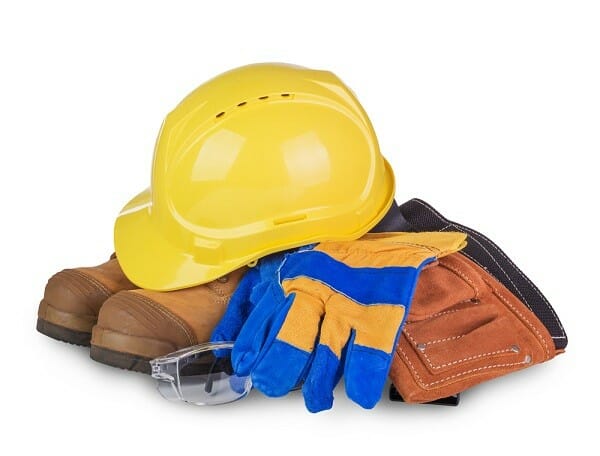You don’t expect a trip to the park, store, or train station to turn into something more serious. Most of the time, you move through public spaces without giving it a second thought. But now and then, something feels off.
A loose handrail, poor lighting, or a slippery floor—you notice it, but many don’t. And when a space meant for the public isn’t maintained well, it becomes more than just a nuisance. It can turn into an injury.
If something does go wrong, who’s at fault? Is it the city? The store owner? Or someone else entirely? Understanding responsibility in public spaces, especially in a state like Illinois, can help you make sense of what to do next if something causes harm.
Let’s learn more!
What Counts as a Public Space?
Not every space is entirely public, and that matters in determining culpability. Some places are public, and some are private, but still accessible to all. Here’s how they break down:
- Street pavements, parks, and public buildings – run by municipal governments
- Shops, restaurants, malls, and cafes, which are owned by individuals but accessible to the general public
- Transit hubs — such as airports, bus depots, or train stations- can be city-owned or shared
- Semi-public spaces — where access is restricted, like an office building, an event hall, or a lobby shared only with a few tenants.
Each comes with different levels of responsibility.
Common Hazards That Lead to Injury
Most dangers in public settings feel tiny—until they inflict serious damage. In the case that a property must be maintained to be considered safe, the property owner or manager may be liable under premises liability. Common risks include:
- Sidewalks that are uneven or pavement that is broken
- Wet floors or uncleared snow
- Bad lighting in stairways or parking garages
- Unfenced construction sites or open utility holes
- Unprotected wiring, handrails that need tightening, and unaddressed repairs
If these issues are not addressed and someone gets hurt, the responsible party is liable.
Who May Be Responsible for Your Injury?
When an accident happens, the first question is always: Who’s responsible? Well, the responsibility depends on who owns, manages, or controls the space, and whether they were negligent in keeping it safe.
Here are the possible parties:
- Property owners or managers: According to Illinois premises liability attorneys, property owners have a legal obligation to make sure their property is reasonably safe for visitors. For example, if you walk into a grocery store and slip on a wet floor with no warning sign, the store owner may be responsible. But laws vary, and your specific case may depend on small details. That’s why it’s smart to talk to a local lawyer who understands Illinois laws.
- Government bodies: Cities, park districts, or transit authorities manage many public areas. If you trip on a broken sidewalk that the city failed to repair, the city could be liable. However, filing a claim against the government usually involves a shorter timeline and stricter procedures. It’s not impossible—but it’s more complicated, so talking to a lawyer might help!
- Maintenance contractors or cleaning companies: Sometimes, the responsibility lies with a third-party company. Say a janitorial service is hired to clean a building, but leaves a mop bucket in the hallway, causing someone to fall. In that case, the contractor, not the property owner, might be at fault.
- Businesses that lease the space: Picture this: You walk into an office as a visitor. There’s exposed wiring, and no one has marked it or fixed it. You get shocked or suffer burns. The business leasing office space, not just the building owner, may be responsible for the unsafe condition. That’s also considered premises liability.
Understanding who had the duty of care and whether they breached it is at the heart of every claim.
How a Lawyer Can Help You Navigate the Process
Determining who is responsible and constructing a case requires more than just sharing your side of the story. This is where you need a competent lawyer.
- Examining the Cause and Liability
A lawyer might dive into the details — who owns the property, who maintains it, and whether there is a history of complaints or violations. They examine contracts, records, and accountability.
- Gathering evidence
You may not realize it at the time, but your lawyer will assist you in gathering photographs, security footage, and eyewitness reports. This step can decide whether your claim is successful.
- Negotiating with the insurance companies
Insurers usually won’t make a reasonable upfront offer. Lawyers push back. They know how to measure losses — short- and long-term. They do the back and forth, so you don’t have to.
- Ensuring fair compensation
Medical bills, missed work, chronic pain — it all adds up. A lawyer helps you get what you deserve, not just a simple payout.
So, if you ever face any injury in a public place, make sure to connect with an attorney specializing in premises liability cases. It will help you get the deserving compensation and ensure the unaddressed issues are taken care of timely.
Conclusion
When public spaces aren’t safe, the consequences fall on the people using them. If you’ve been hurt, it’s not just about blame—it’s about accountability. Knowing who’s responsible and taking action can help you heal, recover, and move forward with confidence.








